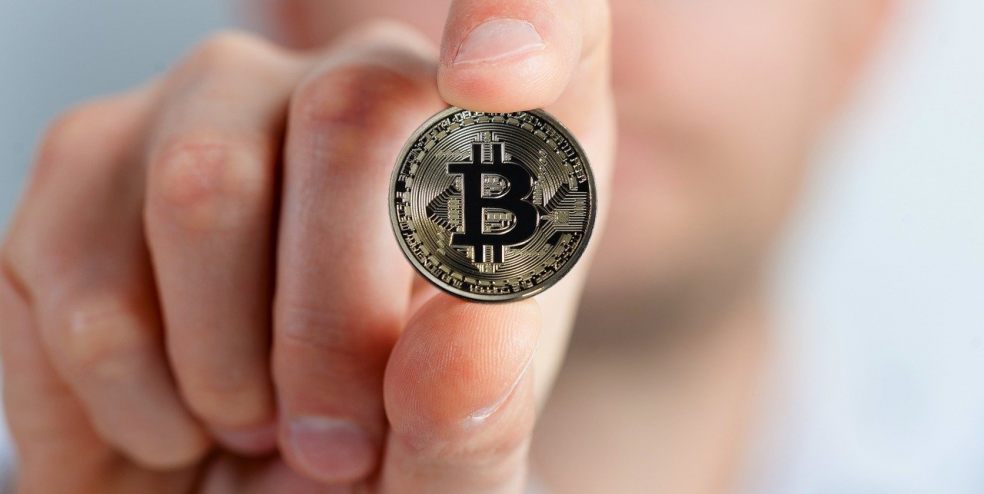
How to save your crypto-investments from substantial scams
Cryptocurrency's meteoric rise in recent years has provided scammers with a wealth of new options to steal your money. An all-time high of $14 billion in crypto was allegedly stolen in 2021, according to a research by blockchain research company Chainalysis. If you're thinking about getting into crypto, you should be conscious of the risks and don't fall into the trap of fake bitcoin wallet screenshots. To save your crypto account from future thefts, continue reading to learn how to recognise and prevent common crypto scams.
The Most Popular Forms Of Crypto Scams
There are a wide variety of different crypto frauds. The following are among the most frequent:
Fabricated trading sites
Fake bitcoin trading platforms and wallets are frequently created by scammers to deceive unwary victims. Generally, fishy websites come up with familiar or replica of known brand names. Thus making it really complex for novice or expert traders to find out which ones are real.
The two most common types of fabricated crypto sites
Phishy Page
The scammers have access to all of your financial information, including the crypto wallet's passwords and restoration phrase.
A direct threat
The service may first allow you to transfer a tiny quantity of money as a form of theft. Mostly catching profiles of well-performing traders because it is a common practice as each trader desires to invest bigger once their trades begin doing good for them. That's when the trap happens. The site after your new trades will either close down or deny your request to withdraw the money afterwards.
Malware scams
A common target of cryptocurrency phishing attacks is information about online wallets like a fake bitcoin wallet screenshot. In order to access funds in a crypto wallet, scammers look for the wallet's private key. The way they operate is identical to other phishing scams and to the fictitious websites that were previously detailed. In order to get people to visit a custom-built website where they may submit their private key information, they send enticing emails. These wallets' cryptocurrency is then stolen by hackers who have gained access to this data.
Pump or dump offers
Emails or social media like Twitter, Facebook, as well as Telegram are used by fraudsters to promote a specific coin or token. Due to dealers' eagerness, the price of the coins has increased. Fraudsters can then profit from a significant drop in the asset's value by liquidating their holdings after successfully driving up its price. This is something that can happen in a matter of minutes.
False endorsements via a public figure
People are more likely to fall for a crypto scam when the scammer pretends to be someone well-known, such as a celebrity, businessman, or other influential figure. Occasionally, this entails pitching naive investors on fictitious cryptocurrencies that don't exist. Websites and pamphlets that look like they feature endorsements from big personalities like Elon Musk can be used in these scams.
False giveaway schemes
It's called a giveaway scam when scammers promise to double or even quadruple the amount of cryptocurrency transferred to them. This can be done through clever messaging from a social network account that appears to be legitimate. A "once in a lifetime" chance can inspire people to move money rapidly in the expectation of a speedy return on their money.
Blackmailing scams
Blackmail is another tactic used by scammers. Adult websites that the user has visited are threatened with public exposure or blackmailing them by leaking fake bitcoin wallet screenshot details until they hand over their private keys or pay the fraudster with cryptocurrency.
Double-dealing initial coin offerings (Icos)
For new crypto enterprises, an ICO or initial coin offering is a way to raise money from potential customers. Customers are often given a discount on the fresh crypto coins in trade for submitting active cryptocurrencies such as bitcoin or another well-known cryptocurrency. This is not uncommon practice.
In order to defraud investors, scammers have gone to creative lengths, such as renting bogus offices and designing high-end marketing materials, in a number of ICOs that have since been found to be false.
Tips to protect your hard earned cash from becoming a scam's prey
There are a lot of smart and convincing crypto scams out there. The following are some measures of self-protection that you can take:
Apt incorporation of private keys
You must have a wallet containing private keys in order to invest in cryptocurrencies as suggested by the companies which own the best cryptocurrency wallet in the UK. If a company asks you to hand over your keys in exchange for access to an investment opportunity, be wary. Keep your wallet's key safe.
A regular wallet check
Sending a little amount of money to verify a crypto wallet app's validity is recommended the first time. If you detect any strange behavior while updating your wallet app, stop the update and delete the programme.
Avoid fancy/complicated investments
If you don't understand how a cryptocurrency works, it's better to hold off on making a decision until you've done further research.
Impulsive decisions are a big no
High-pressure methods, such as claiming bonuses or incentives if you sign up immediately, are frequently employed by scammers. Prior to making a financial investment, do your own study.
Not all ads are true
Social media is a popular tool for cryptocurrency scammers to disseminate information about their dubious schemes.
These people may use unlawful photographs of superstars or high-profile entrepreneurs, or they may offer freebies or cash in order to appear legitimate. Don't be afraid to be skeptical of crypto-related chances that you see advertised on social media.
Hang up on unknowns
To be on the safe side, don't invest in cryptocurrencies from someone you don't know. When someone approaches you in this manner, do not give them any personal details or transfer money.
Only use apps that come from legitimate sources. It is safer to install apps from the Playstore and Apple App Store than from any other source.
Test the water
The most well-known cryptocurrencies are not rip-offs in any kind. Look into new crypto-currencies that you've never heard of. See if they have whitepapers you can read, discover who manages them and how they work, as well as read real user evaluations. Look for a reliable and up-to-date list of false bitcoin frauds.
If it's too good to be true then maybe it's not
Scams are more likely to be found in companies that claim guaranteed profits or strive to make everyone rich overnight. Thus it's wiser to believe in facts rather than myths.
The Bottom Line
The consequences of becoming a victim of a bitcoin scam can be severe, so don't wait if you've already made a payment or provided personal information to the scammer.
You may be able to report scams to the appropriate authority in your jurisdiction, where you're from. As with any opportunity to make money, never risk money you can't afford to lose by making a purchase here. The volatile and speculative nature of cryptocurrencies necessitates an understanding of the risks. Even if you aren't being scammed you must be cautious to each step of the trading ladder.




















